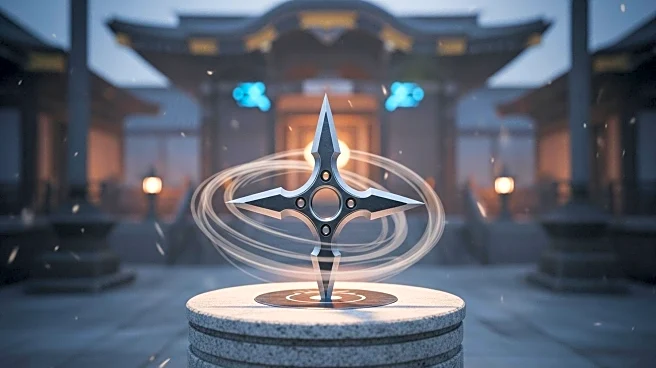What's Happening?
Ninja Gaiden 4 marks the return of the iconic hack-and-slash series after more than a decade. Developed by Koei Tecmo's Team Ninja in collaboration with Platinum Games, the game is set to release on October 21 for PS5, Xbox Series X/S, and PC. The game features returning protagonist Ryu Hayabusa and introduces a new character, Yakumo from the Raven Clan, as they navigate a cyberpunk-infused Sky City Tokyo. Players can expect a high-skill action experience with lethal combos and flashy executions. The game offers multiple difficulty modes and allows players to switch between characters and weapons, enhancing the depth of combat.
Why It's Important?
The release of Ninja Gaiden 4 is significant for fans of the series and the action game genre. It promises a return to the roots of high-skill, arcade-style gameplay, diverging from the trend of sprawling RPGs and Soulslike games. This could reinvigorate interest in traditional hack-and-slash games, offering a fresh experience with modern elements like cyberpunk aesthetics and new character dynamics. The collaboration between Team Ninja and Platinum Games suggests a refined approach to game design, potentially setting a new standard for action games.
What's Next?
As the release date approaches, anticipation builds among fans and critics alike. The game's success could influence future developments in the action genre, encouraging other developers to revisit classic gameplay styles. Post-launch, players will likely explore the depth of the combat system and the narrative, while developers may focus on updates and expansions based on player feedback. The reception of Ninja Gaiden 4 could also impact the direction of future collaborations between Koei Tecmo and Platinum Games.
Beyond the Headlines
Ninja Gaiden 4's revival of classic gameplay amidst modern trends highlights the ongoing debate in game design between innovation and tradition. The game's focus on skill-based action rather than narrative complexity or RPG elements may appeal to purists and challenge current industry norms. Additionally, the cyberpunk setting reflects broader cultural interests in futuristic themes, potentially influencing other media and entertainment sectors.









